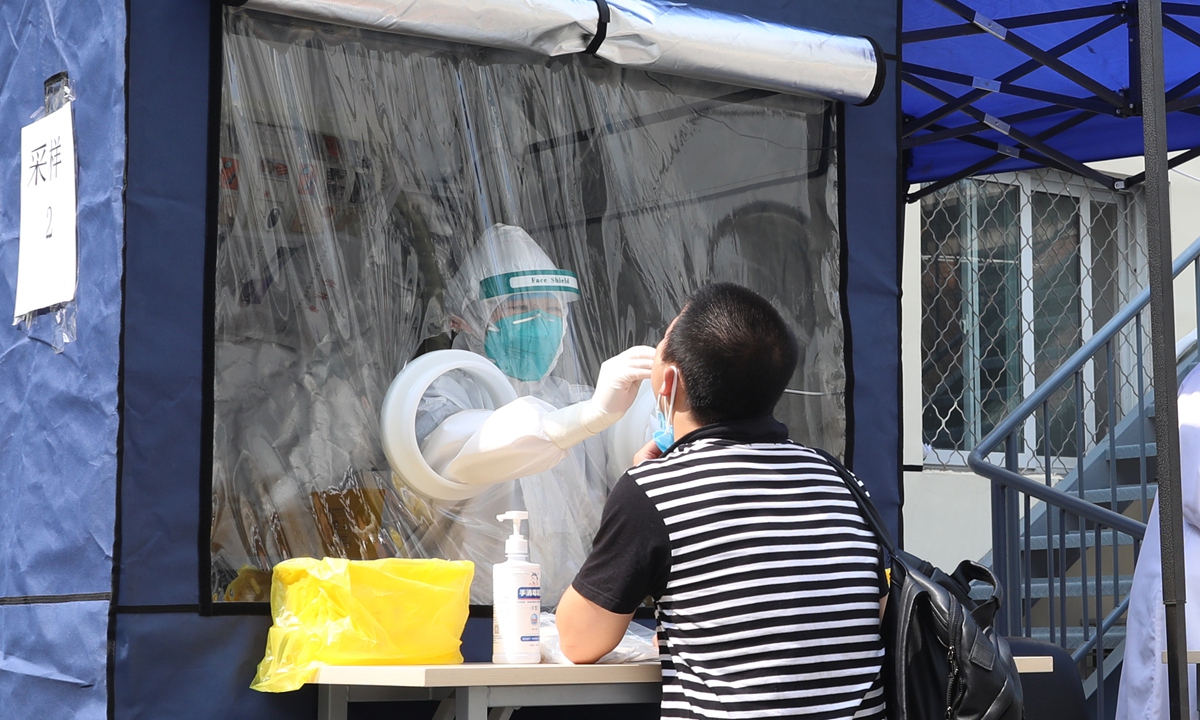Chinese company develops portable nucleic acid testing tents
By Qi Xijia Source:Global Times Published: 2020/6/23 20:33:40

A medical employee conducts nucleic acid tests at Tsinghua University Hospital in an air-conditioned cabin. Photo: Courtesy of Nuctech
Air-conditioned, portable nucleic acid testing cabins have been put into use to battle the hot summer days in Beijing as demand for coronavirus testing picked up.
One such cabin was put into use at Tsinghua University Hospital on Saturday and sampled 1,400 people on the first day.
The cabin was developed by Nuctech, a security and inspection service company based in Beijing, and it aims to provide a safer and more agreeable environment for medics. They conduct nucleic acid tests covered in heavy protective clothes in Beijing, where the highest temperature has been hovering near 35 C.
The cabin is equipped with an air conditioner, which can cool the temperature at 25 C. Medics can sit in the cabin, isolated from the patient, and just extend their hands through two circular holes to conduct the test.
"It just took us several days to update the product after learning medical personnel are soaked with sweat in the hot temperatures to conduct tests," Peng Gang, a person in charge of the equipment, told the Global Times Tuesday. The isolation cabin is sun-proof and rain-proof to suit outdoor weather conditions.
The company has also developed a mobile test cabin.
"The equipment was developed in 28 hours. The mobile cabin can be moved to a place where there is demand for testing at any time," Peng said.
From June 12 to Monday, Beijing conducted tests of 2.342 million people. Since the coronavirus outbreak, Chinese companies have come up with innovative ideas to fight the pandemic. They have come up with various types of epidemic prevention products, which have also been popular overseas.
On Tuesday, 15 sets of 3D printed isolation cabins made by Winsun, a Shanghai-based 3D printing company, were shipped to Pakistan from Shanghai. The shipment will arrive at Islamabad in one month.
"The 3D printed isolation cabins were put into use in Hubei and Shandong provinces. The cabins were equipped with water and electricity facilities. All the interior decoration was completed through 3D printing," Ma Yihe, president of the board of the company, told the Global Times Tuesday.
The company is able to print 100 sets of isolation cabins on a daily basis.
Posted in: COMPANIES,FEATURE